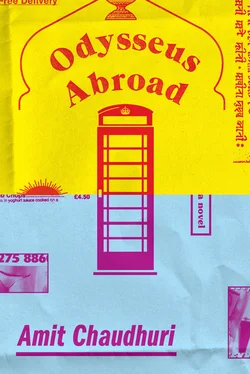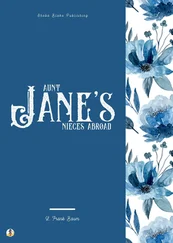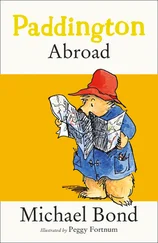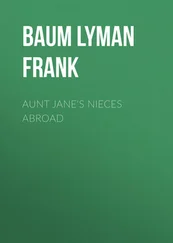“Or you could check if they’re showing wildlife! We could be missing the tiger, Pupu!”
This was a recurrent addiction — to gawp awestruck the great beasts in Africa, while they lolled, napped, sunned themselves, blinked at distant cameras, then pursued and devoured the lesser and stupider animals.
“There are no wildlife programmes at this hour,” Ananda assured him. “Sit down.”
Reluctantly — as if he’d rather walk a few more miles — he descended on the sofa. He began to loosen his shoelaces. Let those ankles breathe. Reaching impatiently for the remote control — he was hopeless with devices, but now had the measure of this one — he pushed both himself and Ananda into a vortex of channel-changing. Finally, calming down, he laid the remote control on the sofa, and said:
“I’ve eaten too much.”
Tamely, in accidental concord, they’d come back to laughter and Rising Damp .
“Do you want a laddoo?” Ananda was under pressure to dispense with six uneaten ones.
His uncle gave him an eloquent stare.
“Are you mad? Do you want me to die tonight?”
Though lazy and recumbent for now, he’d be off to Belsize Park in twenty minutes. What an idiotic plan Ananda had had once — that they’d share that bedsit. Not because it was too small. But you couldn’t share any space with him: to live with his uncle would be to go mad. Or at least to be changed; or sidetracked permanently, indubitably, from a traditional idea of coexistence. No wonder God, in his mercy, had withheld a spouse from him.
“In fact, I’m going to put on weight as a result of that slap-up meal ,” he complained. “Anyway, my cheeks have always been too fat and my face too round.” Ananda glanced quickly away from Frances de la Tour to confirm that his uncle was describing the person he knew. While it may not have met Rangamama’s standards of consumptive narrowness, the face wasn’t round at all; the cheeks weren’t full. Yet the baritone had a way of casting a spell which meant almost everything his uncle uttered sounded true and reasonable. Half the time you argued with him not to dispute him but to fend off becoming an accomplice to his vision. “Also, my nose becomes larger when I eat too much.” Just as Ananda prepared to debate the canonical European preference for starved, phalange-like noses, his uncle observed: “You know that a large nose is a sign of virility.”
“Is it?” Given that Ananda had grown up in the world essentially in the proximity of a mother who talked unstoppably, he was quite capable of following Rising Damp and engaging in a dialogue with his uncle simultaneously. As they slipped into a commercial break, he let himself relax and consider these questions. The nose and virility: he speculated on the kind of equation being made here. It was vaguely obvious. But what reliable knowledge would a virgin have of virility? Intriguingly, experience didn’t seem to matter so much when it came to Ananda’s uncle. He always sounded more experienced than he could possibly be. As if he had recourse to some other source of information outside reading, education, and life.
“Oh very much so. You know that Christ had a big nose?”
Not that Christ was particularly celebrated for his virility. Still, Ananda found this an arresting piece of information. He hadn’t known that there were actual likenesses available — which could have attested to the feature. The Roman Catholic portrait at the reception of the Indian YMCA displayed the generic Christ, the timorous, blonde-haired, blue-eyed face upturned to the heavens, a lost middle-class student searching for guidance in an inhospitable world.
“If you think Christ looked the way they show him in films,” said his uncle, gazing straight at Ananda, as if he’d caught him out indulging in exactly such an irresponsible misconception, “you’d be wrong. Christ wasn’t European: he was from the Middle East. It is said that he had a large prominent nose. The way you see him today is Western propaganda.”
He leaned back on the sofa, unarguable, his nose radiating a new power, looking like he was in no hurry to leave. The next moment he got up.
“Small job,” he clarified.
He shuffled off to the neighbouring bathroom.
A thunderclap. The Patels. Or was it Mandy? Back earlier than expected. Ananda steeled himself. Another bang — below him. Mandy. You had to feel for her, actually. Solitary homecomings. From Paul Hogan draining a can of lager in the outbacks — such were the images (caricatures of epic voyages) that flashed before you as the day drew to a close — Ananda looked behind him at Warren Street, the pale torches of the sodium vapour lamps that would keep him company through the troubled sleep to come.
Tandoor Mahal: bright and desolate. A lone jacketless man before it. Was it Mr. Alam?
His uncle returned to him with the fretful air of one who’d not only been pissing but deeply pondering.
“When Annada Shankar Ray came to Europe in 1931,” he said, “he predicted a time would come when everybody will be famous. Well-known people will rise as thick and fast as bubbles in the air.”
Ananda wondered whether this might be some kind of comment — a parting shot before his uncle made his way back — on the futility of Ananda’s unspoken but undeniable ambition. That Ananda, through no real fault of his own, had simply been born too late, when becoming a successful poet didn’t actually mean that much: not because success was less desirable now, but because everyone had a right to it today. This might explain the disbelieving feeling he had when he watched This Is Your Life or Cilla Black or Stars in Their Eyes .
“Shudrer yuga,” said his uncle, as if pronouncing a verdict, tucking in his shirt very slowly. “The final epoch, according to Vivekananda. The age of the shudra.”
Terrible word: doomed menial, untouchable. Fixed in servitude for eternity. Brahman, Kshatriya, Vaishya, Shudra. The lowest of the low. His uncle had assumed each of these incarnations in the course of a single life: philosopher, warrior, merchant, beggar. Surely it wasn’t the actual shudra he was speaking of? For was the shudra anywhere near finding dignity and freedom? It seemed not. Then in what way the age of the shudra? Unless it was some allegory he meant…Of course— then it made sense, as an insane cosmogony. The caste system could serve as a metaphor for the epochs succeeding each other since the dawn of time. Ananda was momentarily happy to go along with the scheme. The first age, of Brahman, was (decided Ananda proudly) India’s — the Brahman not being the pusillanimous priest with the sacred thread, but the spiritual man, who could have any provenance whatsoever, emerge from any caste: the sage and renunciate. The second age, of the Kshatriya, the warriors and aristocrats, was Rome’s. The king and the notion of Empire was then supreme. It was the aristocrat who fostered and nurtured value and beauty and the arts. When the aristocracy went to seed the third age came into being, of the Vaishya — the merchant. You had to grant that epoch to the English: the ascendancy and rule of the shopkeeper, the burgher, who might possess an Empire but whose outlook was essentially humdrum, middle-level, and suburban. (Amazing how the allegory fell into place.) Finally, the last age: the shudra’s — in which the man on the street was illusorily empowered. (For power invariably deceives those it passes on to.) It was a toss-up whether — if you subscribed to the metaphor — the epoch belonged to Russia or America. It would seem America. For this would be the epoch nominally of the common man, but really of capitalism and popular culture. Everyone would be famous. And after this final phase (Ananda hoped it would take another century to truly arrive) — what?
Читать дальше











